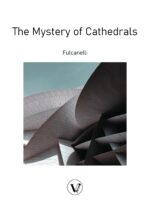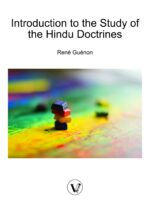The Esoterism of Dante
Was Dante Alighieri merely a poet—or was he an initiate transmitting profound esoteric truths beneath the veil of verse?
In The Esoterism of Dante, René Guénon unveils the hidden symbolic and initiatic dimensions of Dante’s Divine Comedy, arguing that the celebrated medieval masterpiece is far more than a work of literary genius—it is a spiritual map encoded with metaphysical teachings rooted in the Western esoteric tradition.
With penetrating insight and scholarly precision, Guénon deciphers the allegories, cosmology, and spiritual symbolism embedded in Dante’s journey through Hell, Purgatory, and Paradise. He reveals connections to initiatory organizations such as the Fedeli d’Amore and explores the deeper, often overlooked meanings that unite Dante’s vision with universal esotericism.
A compelling synthesis of traditional wisdom and literary analysis, The Esoterism of Dante invites readers to rediscover one of the greatest poems in world literature—not just as a poetic achievement, but as a spiritual revelation.
E-book
Epub, Mobipocket, Web, Send-to-Kindle
REVIEW QUOTES:
“An interesting book in which Guénon seeks to explore similarilties and parallels between the symbolism of Dante’s Divine Comedy in particular and that of freemasonry, Rosicrucians, and Christian hermeticism.”- Maan Kawas’ Reviews – Goodreads
“This slim volume, filled with precious insights, conveys Rene Guenon’s ideas regarding the Christian esoterism which pervades the mediaeval vision of Dante Alighieri: herein the French-Egyptian metaphysician, throughout a series of compact and detailed chapter-essays, examines the esoteric context, symbology and content of the great 13th century Florentine’s epic evangelical exposition of Catholic ethics, eschatology, sophiology and soteriology and identifies certain key-themes which he unfolds in a fascinating manner as if guided by the Madonna Intelligenzia herself. Dante’s technique of polysemous exegesis and the `Four Senses’, crowned by the Anagogic sense is explored, the mysterious tertiary order of the Knights Templar, the `Fede Santa’, with which the poet was affiliated is discussed: the possibility of Sufic influences from Akbarian sources, first proposed by Miguel Asin Palacios, is considered and the tripartite cosmology of tradition contemplated. Hermetic, Rosicrucian and Masonic implications are brought into the picture as Guenon traces the salient contours of Dante’s mediaeval world-view. In respect of the `Divine Comedy’ the Inferno represents the Hell of the fallen, world of profane humanity and its iniquities, the Mountain of Purgatory is the initiatory realm of purifications, trials and expiation rising to the Terrestrial Paradise and Paradiso the transcendent supra-cosmic world of the heavens symbolising the `sciences’ or more properly `gnoses’ culminating in the vision of the Mystic Rose of Heaven. Guenon shows very clearly how Dante portrays Lucifer locked in the ice of Judecca as the fallen Tamasic element, the `inverse attraction of nature’ characterised by obscuration, descent and contraction in the lowest icy circles of Hell and thus denoting `the tendency toward individualisation, with all the limitations inherent within it’, rather reminiscent of William Blake`s `Satan the Selfhood` or the Sufic idea of Iblis as the Nafs, the lower passional Ego. Certain dense pages examine the encoded structures of Dante’s cantos in the light of complex traditional number-symbolism and the cosmic cycles. Rene Guenon specifically dismisses those fanciful theories typical of the 19th century by which heretical or revolutionary connotations were wishfully projected upon the work of the great Florentine poet and tersely consigns this species of mistaken speculation. In fact the Catholicism of Dante’s vision is unimpeachable in its orthodox purity and true Esoterism is never in reality opposed or antithetical to Exoterism in any case but exists as a symbiosis within authentic Tradition. Anybody who appreciates the brilliance of authoritative insight and clarity which characterizes the Guenonian perspective will find this book an invaluable companion when reading the sonorous visionary cantos of Dante’s great Christian epic of the Middle Ages which the Florentine master himself said he created as a `Fifth Gospel’. For such a slim work, entirely in keeping with Guenon’s exaltation of sacral Quality over profane Quantity, this concise treatise conveys a profundity of understanding in the realm of Dante’s Christian esoterism. Very highly recommended.” – Nigel Jackson’s Reviews – Amazon.com
- Format: Epub
- Pages : 143
- ISBN : 9782487364066
Additional information
| Epub | $10.99 |
|---|---|
| Paper | Soon |





